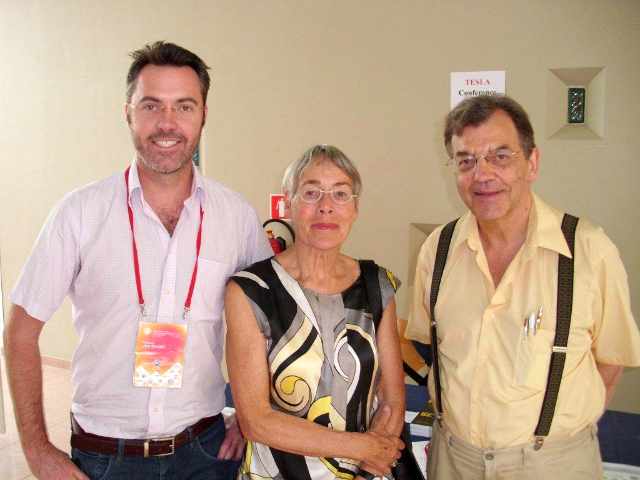You are here
Energising an Emerging field of Practice and Research
The 40 Foundation is a welcome addition to the world of philanthropy. Unlike most other foundations, they have immediately begun focusing on the root causes of our social, economic and environmental malaise: our monetary systems. Community Forge participated in their inaugural conference on social transformation, which focused on the need for, and forms of, alternative currency systems. In particular, the organisers profiled ideas on energy backed currencies, but there was space for other ideas to be presented and discussed.
As one of the first gatherings of its kind, the presenters were extremely diverse in their expertise and experience. The Innovative Currency field, and how it can help promote sustainable development, is rapidly expanding, and analysis is lagging behind practice. Amidst the diversity, one common theme emerged, which the organisers communicated afterwards: "All participants have agreed that modern debt based money creates the illusion of continuously growing wealth; moreover it delivers instability, misallocation of resources and myopic policies. The need of a feedback loop from nature to the economy is obvious, and a variety of alternatives are now arising that can help resolve this problem."
Community Forge participated in order to share information on how grassroots innovations in mutual credit are potentially game changing, and should be engaged with and supported by those who are interested in monetary solutions to our multiple crises. Board member, Professor Jem Bendell, presented the paper, which was released ahead of the conference on P2P foundation. The response from delegates showed how many people working in this field did not know how free open source software is transforming the ability of communities to scale their mutual credit currencies, suggesting that previous limitations may be overcome.
A highlight of the conference for many delegates was the presentation by Brazilian ex Central Banker Marusa Freire who discussed how complementary currencies have grown in Brazil. The experience of the successful Banco Palmas currency, also profiled in the new book People Money, was initially met with scepticism and legal action from the central bank, but then they realised its useful role in job creation and community cohesion, and helped the model to be copied across Brazil, so now there are over 60 such currencies. Marusa Freire explained some of the policy issues, and how much must be learned by central bankers.
As this field grows, there is clearly a need for practitioners, researchers and policy makers to learn from each-other. Therefore we welcome the commitment by 40 Foundation to support such a conference next year, and to better enable knowledge sharing, research and experimentation in the broad field of innovative currencies for sustainable development over the coming years.

